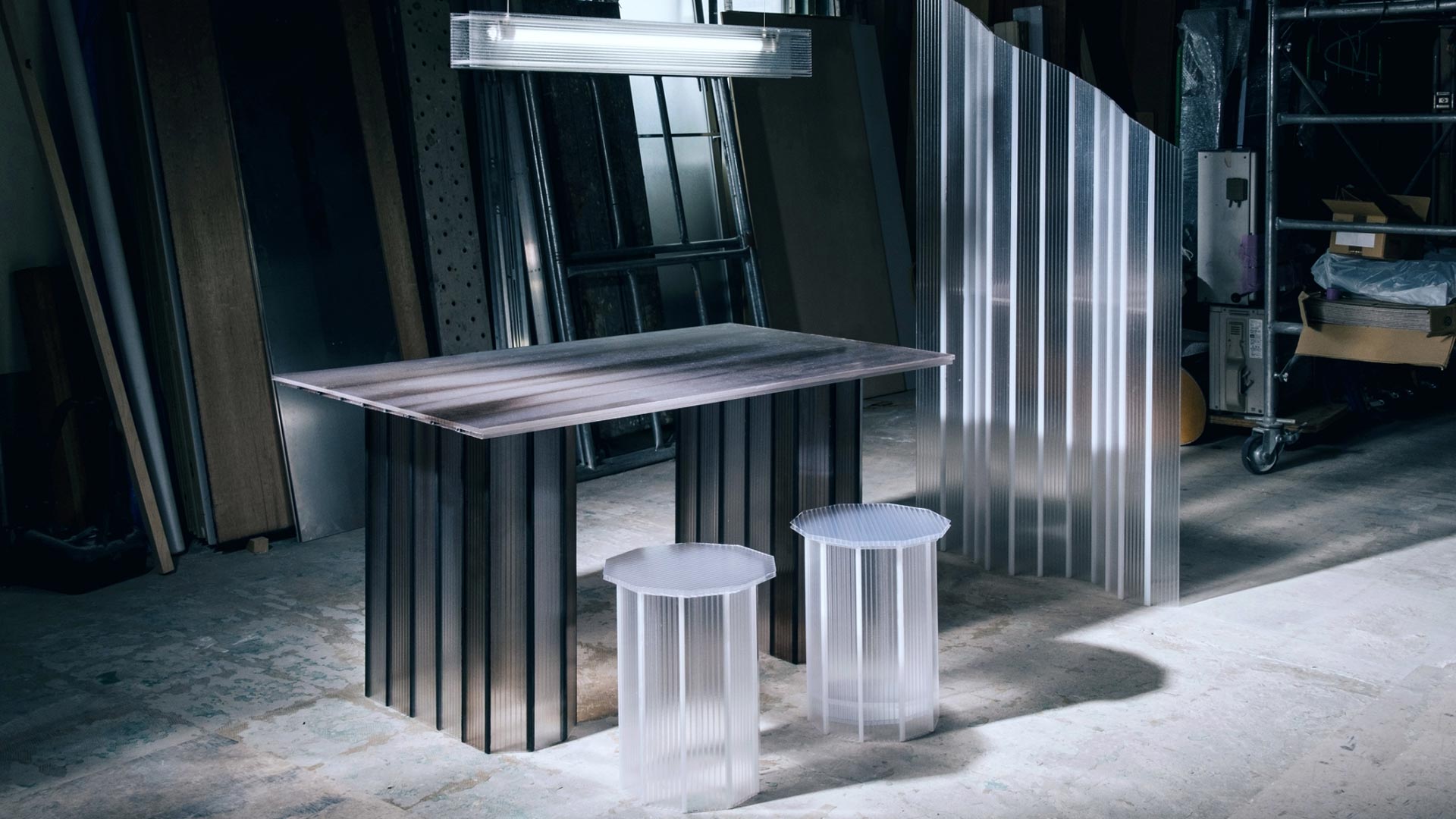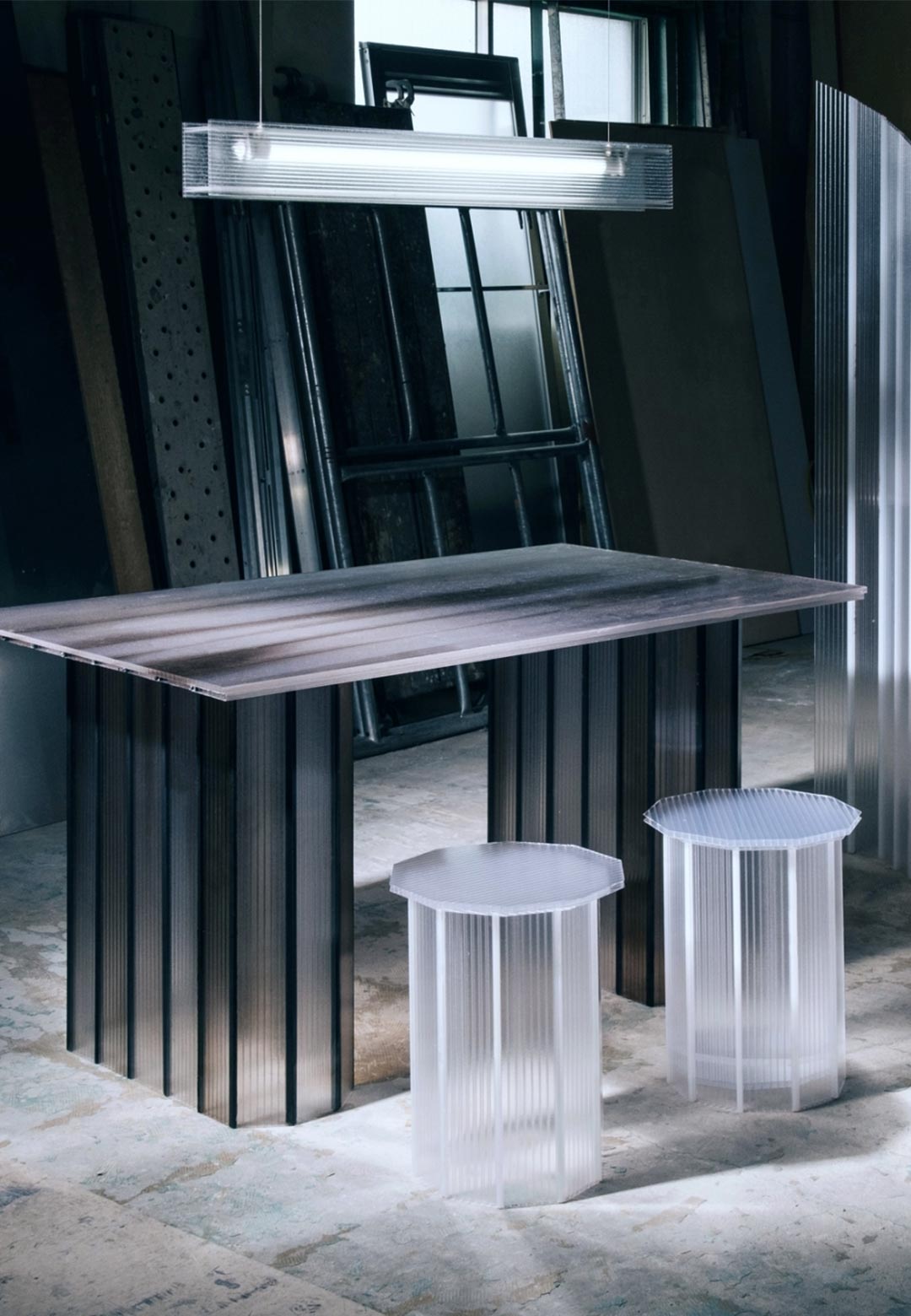Bringing an innovative outlook to product waste from other construction activities, BORDER is an eclectic furniture collection by Japanese designer duo, Shomu Taki and Rikiya Toyoshima. Using the offcuts of hollow polycarbonate from a local joiner workshop in Okayama Prefecture in Japan, the collection includes stools, a table, a partition, and a light fixture.
The material, conventionally used for doors and windows in place of glass, is often custom-made for each door/window size, leading to the wastage of excess material. Which usually ends up in the landfill or takes up space in warehouses. Instead of letting this material go to waste, the designers explore the potential of using these for new furniture designs. The bare materiality of the polycarbonate, with excellent transparency, heat insulation, and durability, is used to the advantage of the new pieces.
The designers, drew inspiration from the waste/offcuts, and processed the material into thin boards of equal width, with the designs created by them adhering to these measurements. The cool, almost transparent look of the material becomes another aesthetic quality of the collection. The clean, distinctive lines of the polycarbonate and the bare look of each board add their own charm to the pieces. Further, using standard board sizes ensures that different configurations for designs are possible. The designers ingeniously used caulking material (usually used for fixing glass), filling it in the grooves at the ends of the board, allowing them to glue each board together.
Ascribing to circular design principles, the pieces also bring into question the idea of excess consumption and mass production, and how designers might better use resources. By using material that would otherwise be overlooked, they showcase the potential to explore other such possibilities. The collection was debuted by the product designers at this year’s DESIGNART Tokyo, a platform that brings together young artists and designers from all over Japan for a 9-day event in Tokyo. The duo, Taki and Toyoshima focus on product, interior and furniture design in their work.






 Sign in with email
Sign in with email










What do you think?